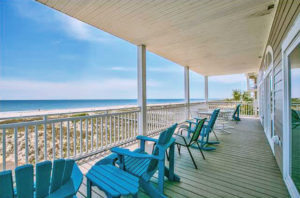 Here you sit, on the deck of the vacation home your family has rented for the week, watching the dolphins jump and basking in the sun. “We should have our own beach house,” you tell yourself. And, you may be right. You would be part of a rising trend, as the purchase of vacation homes has soared over the previous few years.
Here you sit, on the deck of the vacation home your family has rented for the week, watching the dolphins jump and basking in the sun. “We should have our own beach house,” you tell yourself. And, you may be right. You would be part of a rising trend, as the purchase of vacation homes has soared over the previous few years.
But, not so fast. Like the purchase of your primary residence, the purchase of a vacation home is an enormous financial decision. While the obvious consideration is what impact the purchase, management and maintenance of a vacation home will have on your personal cash flow, there are other factors that should come into play.
LOCATION
Make sure you really like a location before you buy. Is it different enough from your primary residence that you truly feel that you are on vacation? Will the rest of your family love it? Can you get there conveniently enough that travel does not become a chore? Are the amenities that you enjoy available … hiking, boating, restaurants, entertainment, or whatever else makes you feel good?
OWNERSHIP
Will you own the home with someone else? If you will, be sure to get all the terms in writing. Consider potential issues, such as when each party will use the home and guest policies. What will happen if one of the owners decides to exit the agreement?
VACATION HOME RENTAL & MANAGEMENT
Many owners of vacation homes choose to defray their costs by renting the home to others when they are not using it themselves. This involves several decisions, not the least important of which is the management of the vacation rental. Professional management firms have the experience, staff, and existing customer base to keep your home in shape and occupied. Through experience, they can give you realistic expectations of the income you can expect to generate. Many owners choose to manage their vacation rental home themselves. There are a several websites that can make the reservation and payment process easier. But, you will still need to clean, inspect and maintain the property yourself unless you hire someone locally to handle those aspects. And, be sure to check the local and State laws, as well as the rules of your owners’ association regarding short-term or transient rentals.
TAX BENEFITS AND PITFALLS
For a true second home, the IRS allows you to deduct your mortgage interest, just as it is allowed for your primary residence, and you can deduct the property taxes. However, the rules become change when you rent your home out for more than fourteen days and the IRS then considers you a landlord. As a landlord, you can deduct your rental expenses, but you must allocate costs between personal use and rental use. It will be important to keep track of the time the home is used personally, being maintained, or donated to charity. As a landlord, your adjusted gross income and whether or not you are considered to actively manage the property will affect the maximum deductions you will be allowed to take.
YOUR INVESTMENT ADVISERS
Start with a local, knowledgeable Realtor. Not only will this adviser be helpful in finding your ideal home and location; she will be familiar with local and association rules and can put you in touch with property managers. You may also need to consult an attorney in order to draw up a binding co-ownership agreement. If you are planning to rent your vacation home, you should also consult a qualified adviser in order to take fullest advantage of the tax benefits available, and in order to avoid the pitfalls that could limit those benefits.
The bottom line is, be realistic, plan carefully, work with qualified, knowledgeable professionals. Then relax and enjoy your personal piece of paradise.v


Leave a Reply